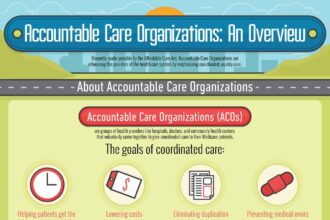I believe we are moving toward two different health systems.
I believe we are moving toward two different health systems.
In one system, patients will be able to see doctors promptly. They will talk to physicians by phone and email. They will have no difficulty scheduling needed surgery. If they have to go into a hospital, a “hospitalist” (who reports to them and not to the hospital administration) will be there to make sure their interests are looked after. They may even have an independent agency that reviews their medical records, goes with them when they meet with specialists and gives them advice on every aspect of their care.
 In the other system, waiting times will grow for almost everything ― to get appointments with physicians, to get tests, to obtain elective surgery, etc. Patients may find that they don’t have access to the best doctors or the best hospitals. They may find that the facility where they are treated does not have the latest technology. In terms of waiting times and bureaucratic hassles, health care for these patients may come to resemble the Canadian system. It may become even worse than the Canadian system.
In the other system, waiting times will grow for almost everything ― to get appointments with physicians, to get tests, to obtain elective surgery, etc. Patients may find that they don’t have access to the best doctors or the best hospitals. They may find that the facility where they are treated does not have the latest technology. In terms of waiting times and bureaucratic hassles, health care for these patients may come to resemble the Canadian system. It may become even worse than the Canadian system.
The evolution toward a two-tiered system was already under way before Barack Obama became president. But ironically, the Affordable Care Act (ObamaCare) is accelerating the pace of change. It is doing so in four ways.First, ObamaCare is supposed to insure 32 million additional people by this time next year. If the economic studies are correct, these newly insured will try to consume twice as much medical care as they have been. In addition, most of the rest of us will be forced to have more generous coverage than we previously had. There will be a long list of preventive services that all plans will be required to cover ― with no deductible and no copayment ― and commercial insurance will be required to cover a great many services previously avoided (including, everyone must know by now, contraception). These two changes alone will boost the demand for care considerably.
On the supply side, there is really no provision under ObamaCare to create more doctors. In fact, the supply of doctor services is likely to decrease because of two more features of health reform. Doctors, who are already weary from third-party interference in the practice of medicine, will step up their retirement dates as they contemplate the prospects of even more bureaucracy. Also, hospitals are acquiring doctors as employees at a rapid rate. Indeed, more than half of all doctors are now working for hospitals. When doctors quit their private practices and start working for hospitals, they reduce the number of hours they work. (Forty hour work weeks and golf on the weekends replaces 50 and 60 hour work weeks.) Since they have a guaranteed income, they also become less productive.
These four changes add up to one big problem: we are about to see a huge increase in the demand for care and a major decrease in the supply. In any other market, that would cause prices to soar. But government plans to control costs (even more so than in the past) by vigorously suppressing provider fees and the private insurers are likely to resist fee increases as well. That means we are going to have a rationing problem. Just as in Canada or Britain, we are going to experience rationing by waiting.
Consider how much waiting there already is in the U.S. health care system. On the average, patients must wait three weeks to see a new doctor. In Boston, where we are told they have universal coverage, the average wait time is two months to see a new family doctor. Amazingly, one in five patients who enters a hospital emergency room leaves without ever seeing a doctor ― presumably because they get tired of waiting.
All this is about to get worse. Waiting times are going to be especially lengthy for anyone in a health insurance plan that pays providers below-market fees. The elderly and the disabled on Medicare, low income families on Medicaid, and (if the Massachusetts precedent is followed) people who acquire health insurance in the new health insurance exchanges will find they are financially less desirable to providers than other patients. That means they will be pushed to the end of the waiting lines.
Those who can afford to will find a way to get to the head of the line. For a little less than $2,000 a year, for example, seniors on Medicare can contract with a concierge doctor. These doctors promise prompt access to care and usually talk with their patients by telephone and email. They serve as an advocate for their patients, in much the same way as an attorney is an advocate for his client.
But every time a doctor becomes a concierge doctor, he (or she) leaves an old practice serving about 2,500 patients and takes only about 500 patients into the concierge practice. (More attention means fewer patients.) That means about 2,000 patients now must find a new physician.
Because the two tiers of health care will compete with each other for resources, the growth of the first tier will make rationing by waiting even more pronounced in the second tier. As a result, waiting times in the second tier could easily exceed those in Canada.
I also believe all this is going to happen much more rapidly than anybody suspects.








